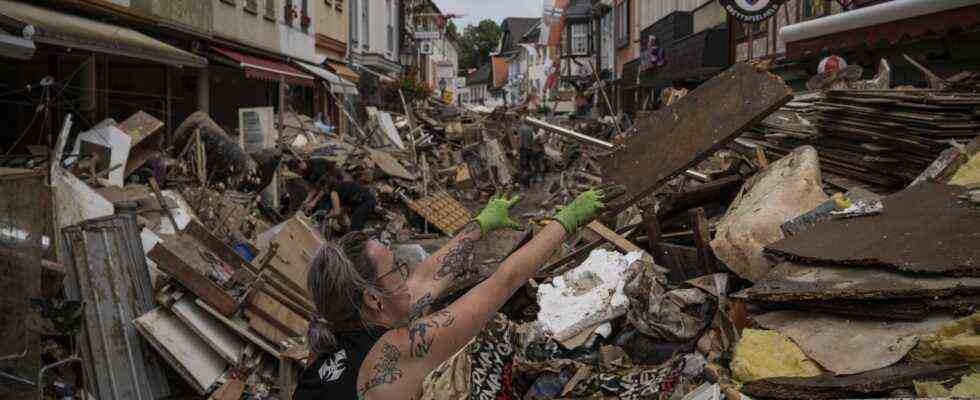Status: 01.12.2021 7:17 p.m.
Germany wants to prepare for future crises: In a national competence center, various actors should react together in an emergency – with a chief of staff at the top.
In recent years, Germany has had to deal with crisis situations at ever shorter intervals. This year, the corona pandemic was accompanied by the flood in Rhineland-Palatinate and North Rhine-Westphalia. Two different crises – with alarmingly high death rates. In these crises, politics has often seemed driven, mostly reacted late and sometimes had to correct itself afterwards.
At the Conference of the Interior Ministers (IMK), which will meet in Stuttgart until Friday, discussions will be held on how Germany can position itself so that it does not be surprised by further crises, so that it does not get on the defensive in crisis situations, but can react quickly.
Quick decisions
Olaf Scholz, who will presumably be elected Chancellor next week, had already pushed ahead with a proposal. At least he wants faster decisions on all questions about the corona pandemic. A federal-state crisis team in the Chancellery is supposed to help.
The unusual: The crisis team is to be placed under the leadership of General Carsten Breuer – in order to strengthen the civilian crisis capability, a representative of the Bundeswehr becomes active in the Chancellery. The crisis team is to increase the previously low vaccination numbers with a campaign or to ensure that there is enough vaccine.
For the Interior Minister of Lower Saxony, Boris Pistorius, this project can only be a “starting shot”. Similar to how Scholz wants to optimize management in the corona pandemic, the federal and state governments must also be better prepared for future crises.
Create resilience
Crises that nobody knows about today. But the objective coincides with the idea of the traffic light coalition: create resilience, i.e. resistance. Specifically, this means: Structures should be established that can quickly ensure effective emergency management in the event of a sudden damage situation. Put simply, according to Pistorius, the national crisis team should not only be set up for the corona pandemic, but permanently: the national crisis management.
“Even in peacetime we need structures that better arm us for an effective emergency management in a damage situation,” says a template for the IMK. The competence center that is currently being set up at the Federal Office for Civil Protection and Disaster Assistance BBK is a good basis for this.
Competence center should come
This competence center is now to be decided at the IMK. In addition, the BBK Federal Office is to be developed into a central office for civil protection. So if forests burn in summer or heavy rain sets in and the levels of rivers rise, but also if an accident occurs in a nuclear power plant, the crisis team in the Chancellery would be alerted.
In the competence center of the BBK, in addition to representatives from the federal and state governments, aid organizations such as the Technical Relief Organization (THW) and the Bundeswehr, other actors would be involved, depending on the crisis. For example, if there were another pandemic, the RKI would probably be on board.
Chief Risk Officer is coming
A chief of staff as the central figure should lead the permanent crisis team, said Pistorius. There is no mention of a representative of the Bundeswehr. But it is important to lead the coordination – for everyone who would have to take action in the event of a crisis.
In the Anglo-Saxon region there is a “Chief Risk Officer”; In the Chancellery there is so far an officer for the intelligence services of the Constitutional Protection and the Federal Intelligence Service, but not for national resilience. The Ampel partners have already made it clear in the coalition agreement that they want to change something.
It is important to Pistorius that international crisis management is also taken into account. The pandemic has shown that Germany not only has to think about the EU when it comes to its vaccination strategy, but also about the vaccination quota outside the industrialized countries. His message: Germany must become more involved internationally, especially in European structures. Whether or not Pistorius’ proposal will be accepted by the Conference of Interior Ministers will be revealed in the course of the next few days.

